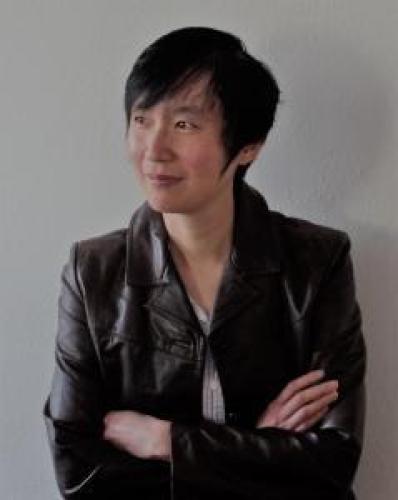
Ng provides insight into cancel culture in her new book ‘Cancel Culture: A Critical Analysis’

Eve Ng, associate professor in the School of Media Arts and Studies and the Women’s, Gender, and Sexuality program, has published a new book on a phenomenon that has emerged in recent years across social media and in the culture at large – cancel culture. “Cancel Culture: A Critical Analysis” traces the origins of cancel practices and discusses their evolution within celebrity and fan cultures, consumer culture, and national politics in the U.S. and China.
Ng defines cancel culture as comprising two central elements: cancel practices and cancel discourses. She explains that being “canceled” doesn’t necessarily mean that the individuals, brands, or organizations are made to become insignificant indefinitely or are made to suffer consequences for the rest of their lives; rather for many cases the cancel targets are only affected temporarily.
“Cancel practices, or just ‘canceling,’ is made up of the things that people do to cancel other people, brands, and so on, like ‘I'm stopping following you on social media’; ‘I'm going to post a hashtag cancel so and so’; ‘I'm not going to buy certain goods anymore,’” Ng explained. “And then what I call ‘cancel discourses’ is what people say about canceling.”
The book explores the origins and nature of cancel culture through case studies examining the cancellations of celebrities, television shows, brands, and even countries. Ng said the concept of consumer nationalism was one of the more interesting aspects of cancel culture she came across in her research.
“Consumer nationalism involves a nationalist approach to consumption, like, ‘We’re not going to buy such and such a brand because they insulted my country,’” Ng said. “I talk about consumer nationalism in China, where a lot of Western brands get canceled on a regular basis—like the NBA got canceled in China for a long time because of certain remarks some players made about supporting Hong Kong.”
Ng said that one element that characterizes canceling, and differentiates it from longer-standing practices like boycotting, is “drama.” Take the example of fashion brand Dolce & Gabbana, which was canceled in China in 2018.
“Canceling is often much more dramatic,” she said. “In China, it wasn’t enough to say, ‘I’m never buying Dolce & Gabbana again.’ People had to burn their bags and clothes and post the videos of the burning things on social media.”
Those videos and other social media posts, along with news reports, opinion pieces, and comment sections across the internet, made up the data Ng used for her research. As a qualitative researcher, Ng utilized methods that didn’t require the kind of massive number-crunch a quantitative analysis would have called for.
“There are ways to qualitatively sample data,” she said. “One is to look at which tweets or which comments have the highest number of likes or retweets, and that’s a rough indication of what people are thinking, saying and feeling about this topic.”
In the cases of the actor James Franco and the comedian Louis C.K., who were both canceled following sexual misconduct allegations at the height of the MeToo movement, Ng found that many of the most popular social media comments were actually those supportive of the men.
“If you just looked at media reports, you might get a misleading sense of how people felt in the digital sphere,” Ng said. “But looking at the comments allows a more complex view of opinion.”
The support shown in those comments from the outset of the canceling would eventually be borne out: C.K. was received “relatively well” when he returned to the public stage roughly a year after the initial scandal.
“Those comments from way back when he was first canceled weren't just an aberration, it was a sign that, yeah, not everyone agrees with this canceling,” Ng said.
One of the most high-profile (and high-stakes) instances of cancel discourse occurred after Ng’s book was published, when Russian president Vladimir Putin compared western reaction to his country’s invasion of Ukraine to the canceling of Harry Potter author J.K. Rowling.
“Because I wrote this book last year, I wondered if, by the time it's published, will cancel culture just be passe?” Ng said. “But no, it's still in the public discourse.”
Ng said she sees opportunities for future research into cancel culture in the Putin episode.
“It would be really interesting to look at what Putin said: How did people respond to his critique of cancel culture?” she said. “There are first order discourses, right? People saying ‘blah blah blah cancel culture.’ But then there are second order discourses of people commenting on people commenting about cancel culture, et cetera.”
Ng also sees opportunities for further research into the cancellations of non-celebrities. Her research cites a few articles about regular people who get canceled after their racist behavior gets captured on cell phones, for instance.
“A lot of that data is really interesting, but we need more of it precisely because it’s a relatively new phenomenon that people are just starting to look at,” she said. “It’s worthwhile just to follow cancel events and see what happens after the spotlight moves elsewhere.”
